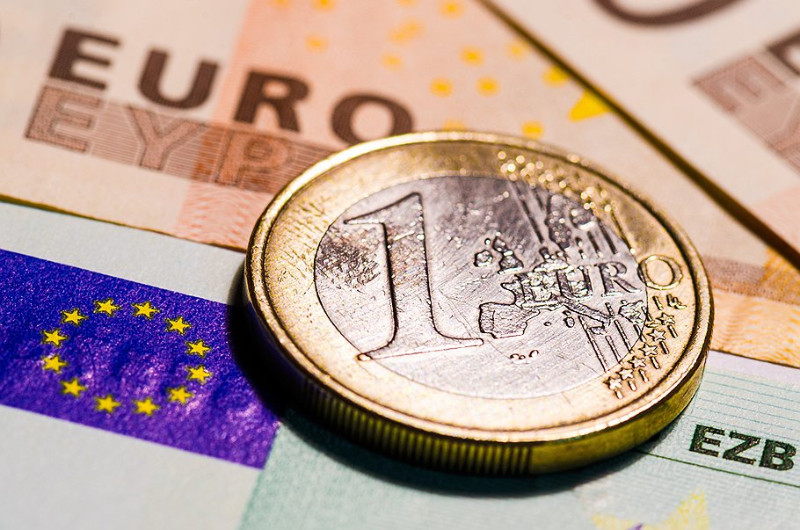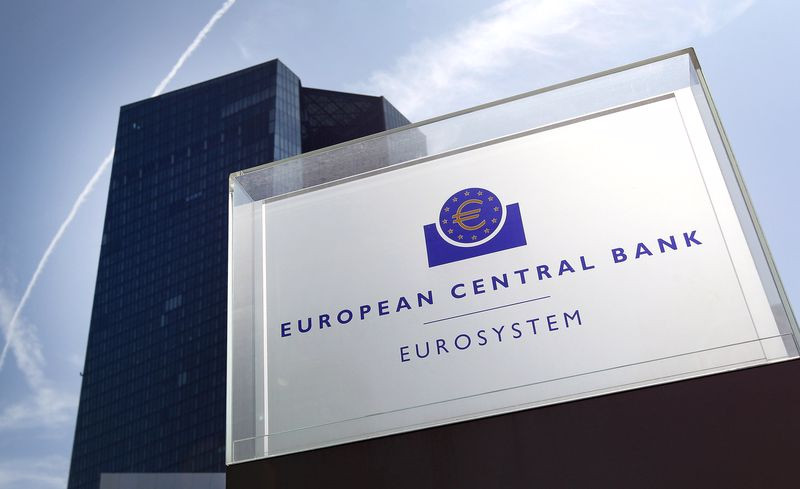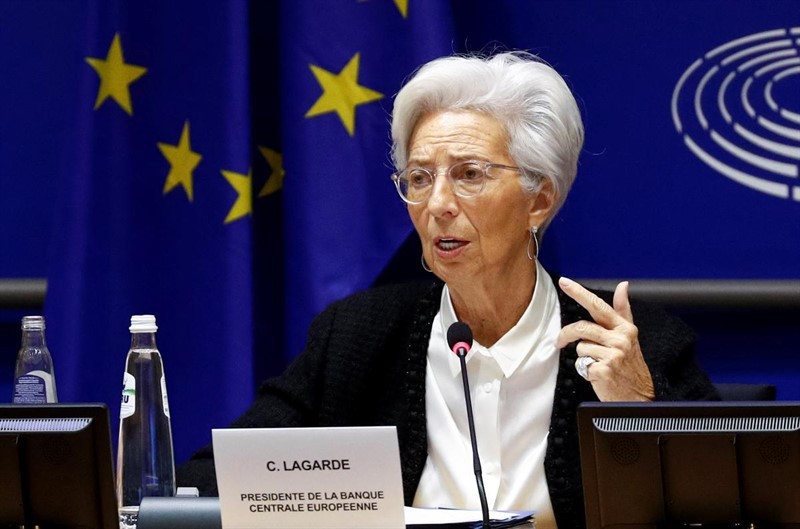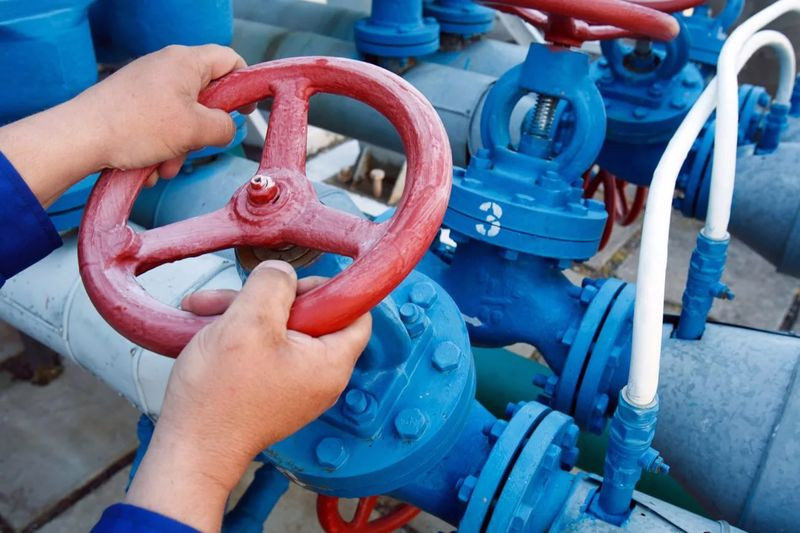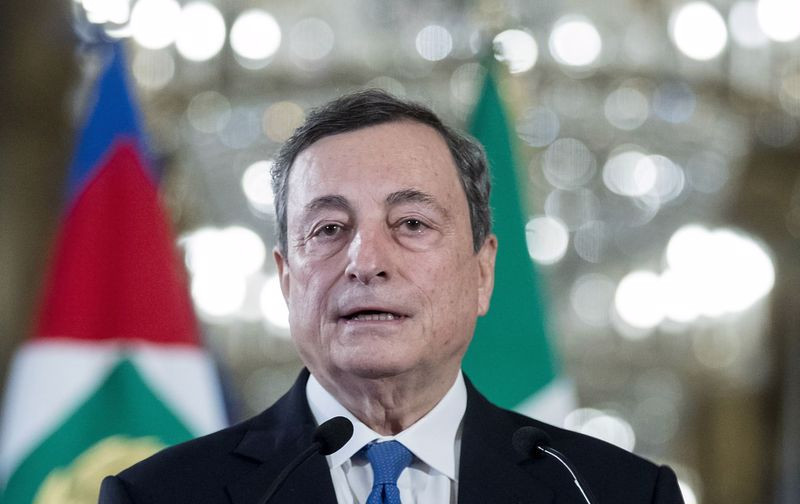Last week, the EUR/USD pair played cat and mouse with parity and even sank below this important ridge twice, reaching the lowest levels since December 2002 in the area of 0.9950.
After the Nord Stream-1 gas pipeline was closed for preventive maintenance last Monday, there was talk on the market that it would not resume work, which in turn threatens to aggravate the energy problems of the eurozone and provoke a recession in the region. Concerns in this regard have dealt a significant blow to the single currency.
The news announced on July 13 that inflation in the United States reached 9.1% in June, which was another four-decade high, added fuel to the fire of the euro's decline. This has increased expectations that the Federal Reserve will raise the rate by a whole percentage point, as a result of which the European Central Bank will fall even further behind its American counterpart in terms of normalizing policy.
The euro has also suffered due to political turmoil in Italy, which not only threatens to undermine calm in the country after several months of relative stability, but also provokes a sharp jump in the yield of national government bonds. The latter complicates the work of the ECB, which is facing accelerating inflation and a sharp slowdown in economic growth.
Almost a decade ago, while at the helm of the ECB, Mario Draghi promised to do everything possible to save the euro. Ten years later, the situation has not changed, and the single currency is again in a deplorable state.
Will the ECB make every effort to ease the fate of the euro?
On the one hand, the weakening of the single currency exacerbates inflation, which has already significantly exceeded the ECB's target of 2%, on the other hand, a more hawkish position on strengthening the currency or a faster increase in rates may harm economic growth.
"They know that it is quite dangerous to fall into the trap of trying to support their currency through the actions of the central bank, because in this case they will need to tighten policy too much, which will damage not only the economy, but also the currency," Janus Henderson analysts said.
After the EUR/USD pair fell to parity for the first time in almost 20 years, the ECB representative said that the central bank was not aiming for a certain exchange rate.
"However, we always closely monitor the impact of the exchange rate on inflation in accordance with our mandate to ensure price stability," the ECB spokesman said.
Difficult Choice for the ECB
The EUR/USD bears took a break ahead of the ECB's July meeting, following which on Thursday it should raise interest rates for the first time in 11 years.
In anticipation of this event, the euro cheered up somewhat and even regained about half of the losses incurred earlier this month.
The EUR/USD rally stalled near the upper limit of the short-term descending channel formed at the end of May. This barrier in the area of 1.0275-1.0280 is followed by the level of 1.0300, the breakdown of which will allow the bulls to aim for a return to the level of 1.0400.
On the other hand, the 1.0150 level is an immediate support that should help limit the decline. Further shorts may negate the current positive mood and make the pair vulnerable to a break below 1.0100. The subsequent drop will lead to a retest of the parity level and a multi-year low in the area of 0.9950.
Although the main currency pair has recovered by about 200 points from the two-decade "bottom", its further fate depends not only on the decisions of ECB President Christine Lagarde and her colleagues, but also on a number of other factors.
Experts disagreed on whether ECB policymakers would adhere to the previously outlined plan to raise rates by 25 bps or go for a 50 bps increase at once.According to Citi strategists, raising rates by 50 bps at once would be a risky move.
"We see a number of reasons why many ECB leaders may want a more substantial increase (by 50 bps). However, if they do this without explicit warning and visible reasons, we fear that this may cast a shadow on other promises, including the fight against fragmentation in the region," – stated in Citi.
Analysts at Berenberg Bank also expect that the ECB will raise rates by only 25 bps on Thursday, and then by 50 bps in September and by another 25 bps in December.
ABN Amro economists believe that the ECB should stick to its preliminary commitment to raise rates by 25 basis points. As for the future increase in interest rates, it will depend on the incoming data, namely, how inflation will develop in the medium term, they noted.
"Ahead of the ECB's next monetary policy decision, speculation has intensified that the central bank may raise the rate by 50 bps instead of the planned 25 bps. Given how far the ECB is behind schedule, it is reasonable to take this unexpected scenario seriously," TD Securities analysts believe.
NAB analysts expect the ECB rate to rise by half a point and predict another increase by half a point in September. In their opinion, the central bank will seek to raise the rate ahead of schedule in anticipation of worsening conditions later in 2022 and in 2023, when the room for maneuver may be more limited.
The EURUSD pair risks resuming its downward trend if the ECB announces a widely expected rate hike of 25 bps.
Although a double dose of an increase can restore confidence in the ECB in the fight against inflation, it can only give a temporary boost to the euro.
In any case, rates in Europe will remain at the lowest level among all developed countries, especially compared to America, where the Fed may raise the cost of borrowing by 0.75% again next week. From this we can conclude that the dollar will continue to look in a more favorable light. This, in turn, will contribute to further capital inflows to the United States.
The Gas Epic is Far From Over
Contrary to fears, Russian gas supplies to Europe via the Nord Stream-1 pipeline resumed on Thursday.
However, Danske Bank strategists believe that the risk of a complete cessation of supplies of blue fuel from the Russian Federation to the eurozone should still not be discounted.
"According to officials, the EU can replace up to 70% of Russian gas imports by increasing LNG supplies and imports via pipes from other regions, green gas, renewable energy sources, as well as by reducing demand. This means that about 1/3 of Russian imports cannot be easily replaced in the short term," they noted.
"If gas flows from Russia completely stop, European governments will most likely be forced to resort to emergency measures, such as energy rationing. In this case, the energy needs of households will be prioritized over the needs of industry, and enterprises operating, in particular, in the chemical, metallurgical and cement industries may be forced to stop production," Danske Bank believes.
Acute energy shortages and increased energy prices will put a burden on all European consumers in the coming winter, but households in Germany, Italy, the Netherlands and Belgium will suffer the most. Thus, a full-scale gas crisis will bring Europe to its knees, the bank's analysts warn.
According to the German Federal Network Agency, as of July 17, the country's gas storage facilities were 65% full. However, the head of the department, Klaus Mueller, believes that the available reserves are not enough for Germany to survive the winter of 2022/2023 without gas supplies from Russia.
Meanwhile, Shell CEO Ben van Beurden said that the problem that the German authorities are very concerned about actually concerns Europe as a whole. And the countries of the region will probably have to introduce rationing of natural gas consumption this winter.
Russian gas is being piped back to the eurozone. But the acute energy crisis is by no means averted, according to analysts at Commerzbank.
"The European Union yesterday called for a significant reduction in gas consumption by 15% over the next eight months and threatens mandatory rationing. The EU continues to almost blindly wade through the crisis. It is impossible to reliably assess either the success of gas saving measures, or what gas supplies it will be able to count on at all. The Russian president has already announced a possible reduction in the volume of supplies next week, and we cannot rule out their complete freezing," the bank's specialists said.
"This means that a significantly higher risk premium for the euro remains justified. This is due to the fact that the threat of a gas shortage puts a double burden on the single currency. Even if rationing can be avoided, the eurozone economy will face significant structural changes associated with the rejection of cheap Russian gas, which will negatively affect the prospects for potential economic growth and profitability in the currency bloc. Meanwhile, high gas prices fuel inflation and reduce the purchasing power of the euro," Commerzbank reported.
The Italian card has not been played to the end yet
On Thursday, Italian Prime Minister Mario Draghi again submitted his resignation. This time, the President of the Republic Sergio Matarella accepted the resignation of the head of government.
Draghi was prompted to take such a step by the vote held on Wednesday in the upper house of the national parliament. On the one hand, the senators supported the resolution on confidence in the Council of Ministers, and on the other – it became clear that there is no longer a coalition uniting the leading parties of Italy.
Draghi will remain as interim head of government until the elections to be held in September or October, in which, according to polls, the conservative bloc, including the far-right Italian Brothers party, may win.
"Do I have a ready-made team of ministers? I have my own ideas about how this country should be governed, what should be done, what its industrial strategy should be," said the leader of the Brothers of Italy, Giorgia Meloni, who, according to forecasts, may become the next prime minister.
The political turmoil comes at a difficult time for debt-laden Italy, the eurozone's third-largest economy, where borrowing costs have soared as the ECB begins to tighten its monetary policy.
The head of the center-left Democratic Party of Italy called last Wednesday a "crazy day," noting that the national parliament went against the will of the people.
"Italians will show that they are wiser than their politicians at the ballot box," he said.





